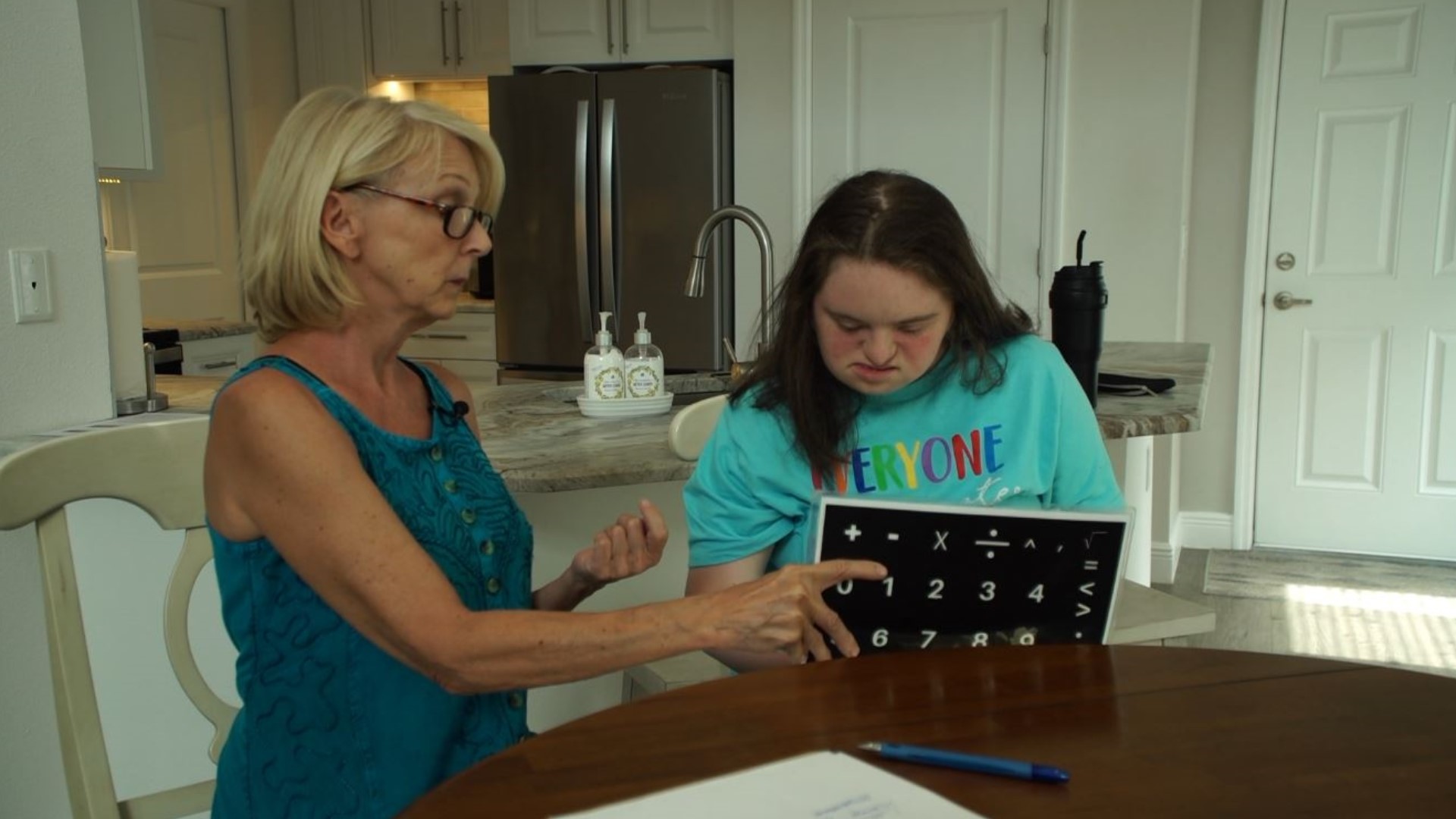TAMPA, Fla. — They are incredible spellers, highly intelligent thinkers and nonspeakers with autism.
Abbey and Shane took us into their community to share how they found their voices and with this form of communication others, like them, can as well.
Using what is called a letter board — a laminated piece of paper with the alphabet — 25-year-old Abbey Gore spelled out her thoughts letter by letter.
“We are not stupid,” she spelled.
Born with Down syndrome and diagnosed as a nonspeaker with autism, she has been misunderstood and underestimated. But she’s heard every comment and listened to every lesson in school.
“Abbey’s voiced many times, 'People look at me and think I am not intelligent.' And so that's a disability in itself,” said her grandmother, Christine McGathey.
“She has Down syndrome. So automatically, she's assumed not to have a cognitive awareness, but she does and that's really important to her to share to the world,” she continued.
Now a speller, Gore works with a communication regulation partner to open up a world for her family and her.
“She said my whole life all I could do is listen. So, she gained all that knowledge because she had no way to communicate,” McGathey said.
We asked Gore: “How has this method of communication helped you?
Gore is not the only speller in the room with us.
“Take your time, Shane.”
That’s Shane Alvado's communication partner helping him communicate with us.
“My son, Shane, he is now 18 years old and about four and a half years ago, is when we were introduced to spelling as a way for him to communicate,” said his mom, Donna Collins.
“I didn’t know what Shane knew," she continued. "I didn’t know what he wanted. One of the worst things was if he was hurt, I didn’t know what was hurting him.”
Shane's mother knew he had autism and that her son could understand and perceive things no one else could. She shared how as a child he would quickly complete puzzles then turn them over and do them just by shape.
We watched as he quickly found pieces because he found a pattern.
“These kids have so much to contribute to the world if only given proper access to communication,” Donna Collins said.
Shane Alvado has an incredible depth of knowledge and with his keyboard used to spell, he has a voice.
“Teaching people what we can do is just the beginning,” Shane Alvado spelled.
And when we asked him, “How has this form of communication helped you?”, e had a lot to say.
“Where do I begin?” he asked.
Ultimately spelling out the following, “Sharing my thoughts truly sets me down the path I once dreamed of.”
His communication partner encouraged him letting him know he was doing well. Shane Alvado nodded back.
Back to Gore and her answer, she spelled, “Now that my words can be set free, I am not going to let anyone get in my way.”
They want people to know that what you have heard or may have thought about nonspeakers with autism is incorrect; non-speaking does not equal non-thinking.
Tampa has one of the largest populations of non-speakers who use spelling as their primary form of communication. The non-profit, Tampa Bay Letter Board Community (TBLBC), hosts events every month to bring spellers and their families together.
You can learn more about the world of Spellers, like Gore and Shane Alvado, in a new award-winning documentary that shares the stories of eight other spellers. You can watch at 2 p.m. Sunday, May 21, at Idlewild Baptist Church with a Q&A to follow, but you must register in advance.
Through spellersthemovie.com/watch, you can watch the worldwide screening from your own home at 5 p.m. on April 30. It costs $10.

